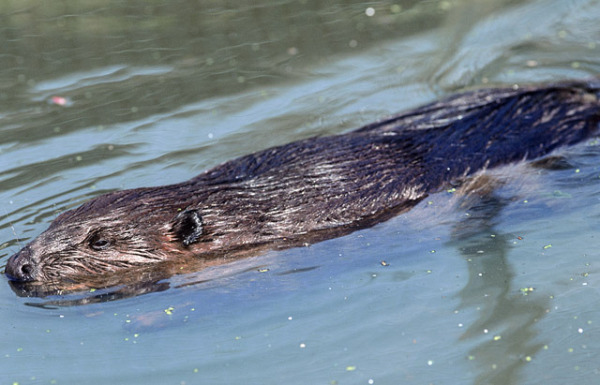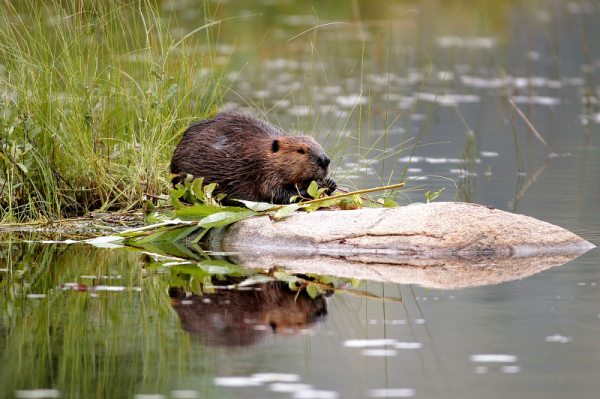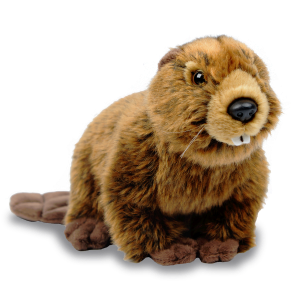WWF holiday adoption gift guide: Introducing the beaver
This holiday season, WWF is introducing six new species for you to adopt and take home, including the beaver. Let’s meet one of Canada’s most iconic animals!

The beaver may be the largest rodent in North America, but they are also one of Canada’s most magnificent species. Beavers have a distinctive flat tail, powerful jaws and chisel-sharp incisor teeth that are ideal for biting through tree trunks and branches. Their teeth grow continuously so that they will not be worn down by chewing on wood.
NAME
Castor canadensis.
HABITAT
Beavers inhabit areas near lakes, ponds and streams. Their families create one or more dams to provide still, deep water to protect against predators and to float food and building material. Beavers are constantly adapting to their environment. This is to meet their need for open water in order to build lodges and avoid predators such as wolves.
DIET
Beavers are herbivores and feed mainly on the bark and cambium of a wide range of tree species, including birch, poplar, aspen, beech, maple and willow. They also eat sedges, pondweed, and water lilies.

WHY IS THE BEAVER AT RISK?
Beavers depend on the healthy flow of water through lakes, rivers and streams for their survival. Although beaver dams help reduce erosion and contribute to wetland health, dams can also plug storm drains and damage flood control and drainage systems. Where dam building is in discordance with human development, beavers may be impacted.
WWF encourages people to consider how ecosystems will be affected before removing beaver dams and to stop the draining of wetlands, which can deprive beavers of water supply.
WHAT IS WWF DOING?
WWF is helping the beaver by:
- Protecting the beaver’s habitat by making sure that the freshwater they depend on remains healthy.
- Assessing the health of freshwater ecosystems across the country through our Freshwater Health Assessments, which inform where additional monitoring or restoration efforts are needed.
- Restoring freshwater ecosystems across the country through our Loblaw Water Fund.
With your symbolic adoption, you’re helping WWF fight to secure the long-term survival of the beaver. What’s more, you’re also helping to save other species at risk around the world and to provide a healthier natural world for us all.
Each adoption kit includes a high quality wildlife plush, personalized adoption certificate, a stunning species poster, a reusable tote bag and an applicable tax receipt.

Visit our e-store shop.wwfcastg.wwf.ca for all your holiday gift options from WWF and give a meaningful gift that keeps on giving!
